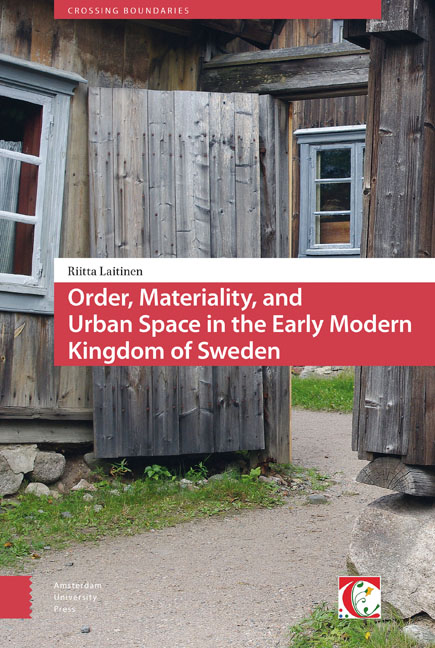Book contents
2 - Undesirable Vagrants – Exclusion or Inclusion?
Published online by Cambridge University Press: 12 December 2020
Summary
‘Time-thieves’ and Beggars
Vagrants were of great concern to the authorities all over Europe. They were considered idle and lazy, useless, immoral, and a threat to the wider community and society. Fighting vagrancy and begging was directly linked to the ideal of the common good and building a good and honourable community, and it was inherently a spatial and material issue. Depending on the ideal of what a town should be like, vagrants might be pushed inside or outside the town: materially removed, hindered from coming in, or alternatively placed in confinement. All across urban Europe, vagrants were banished, put into penal institutions and drafted into armies.
The issue of vagrancy was far from a simple spatial in-or-out question, however; it was connected to a range of social, legal and mental concerns. In the Swedish context, these concerns included a shortage of workers in the countryside, obligatory service statutes, control of trades, crime prevention, control of begging, the fear of unknown mobile people, military recruitment, the curtailing of immoral living, and expectations about the ability to earn one's keep. Many of these issues were shared European concerns, and many of them related to changes that were happening in the attitudes toward work, poverty and wandering. Through examining Swedish attitudes and legislation, I will start this chapter by considering how the authorities’ conception of a good town, and attitudes to persons moving around in the Kingdom, impacted on the regulation of urban communities within the state.
As many scholars have shown, the attitude toward the poor became more negative at the beginning of the early modern era, both in Protestant and Catholic areas. Although Christian charity did not cease to exist, the evaluation of those in need changed. From the sixteenth century onwards, the poor, and especially wandering beggars, were more and more seen only as a problem, and as being themselves responsible for their plight. The earliest new urban poor and beggar laws reflecting these changing attitudes were already passed in the fourteenth century, and the fifteenth century saw an onslaught of laws that divided those in need into the deserving and the undeserving poor. The able-bodied wandering beggar, not deserving of support, also featured in fifteenth-century literature, religious writings, and broadsheets.
- Type
- Chapter
- Information
- Publisher: Amsterdam University PressPrint publication year: 2017

